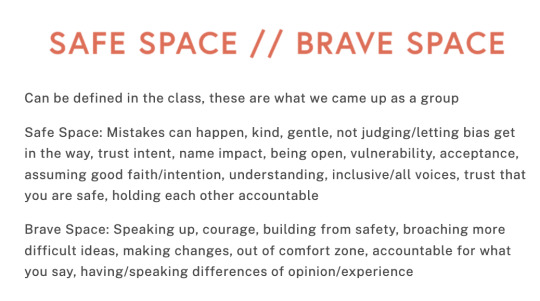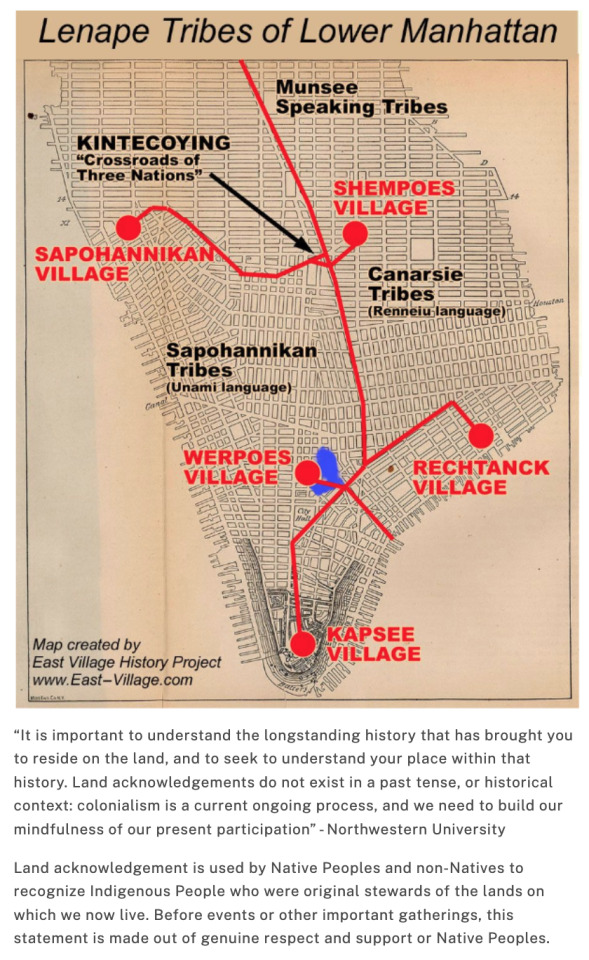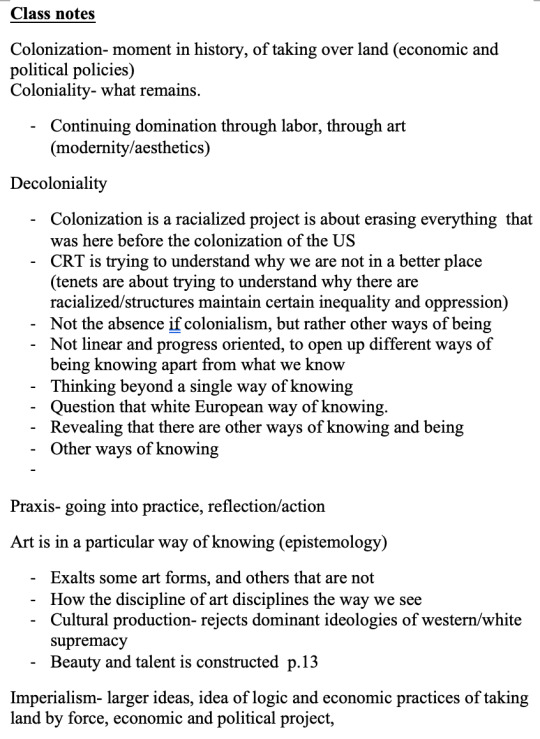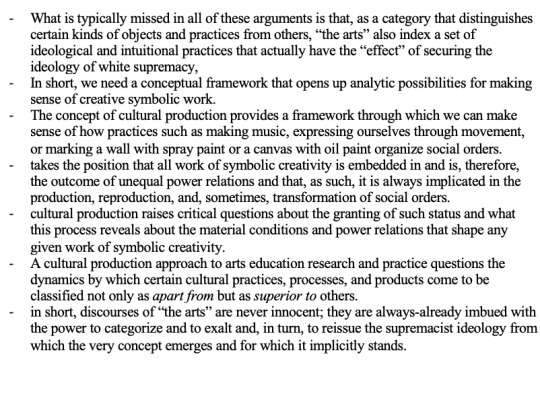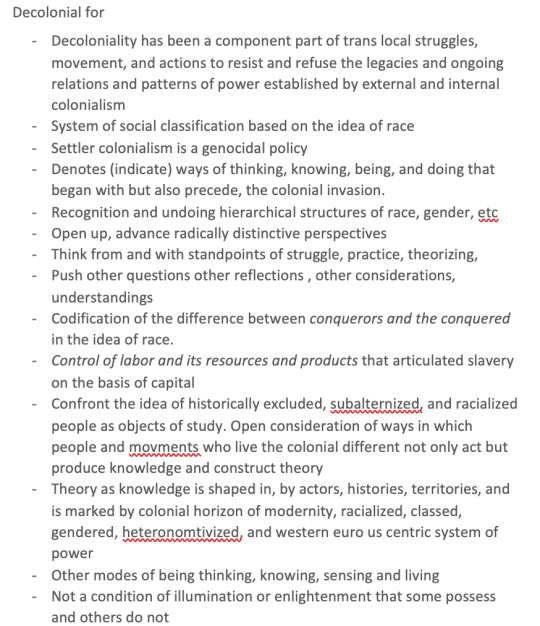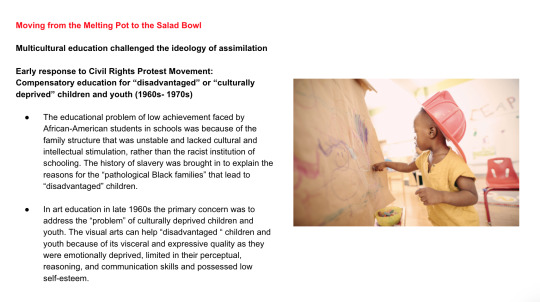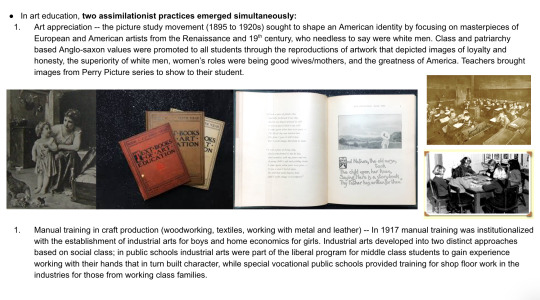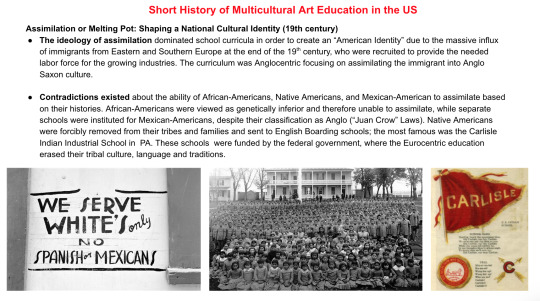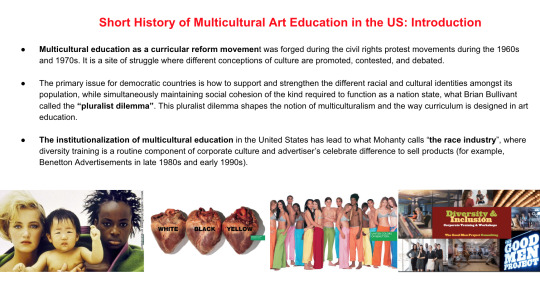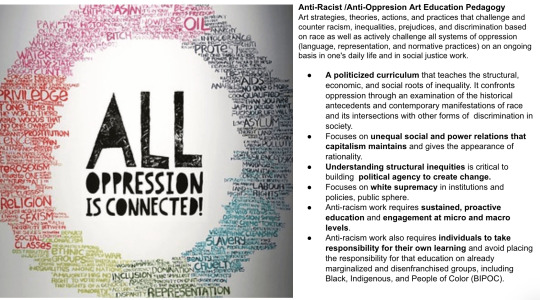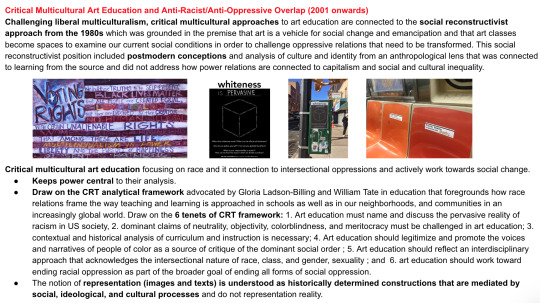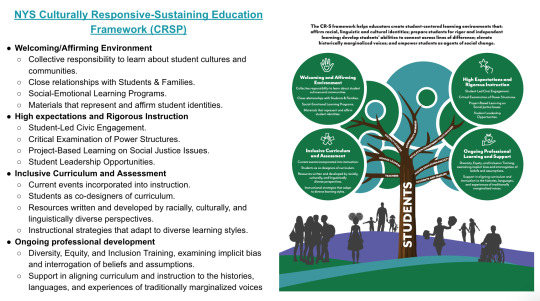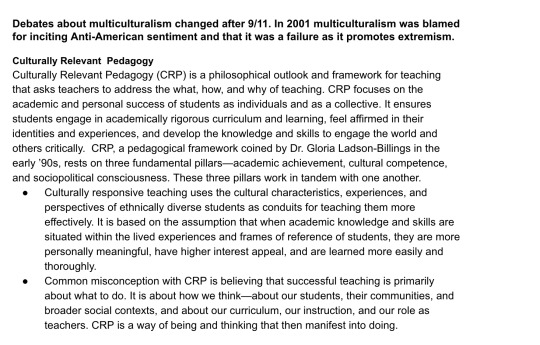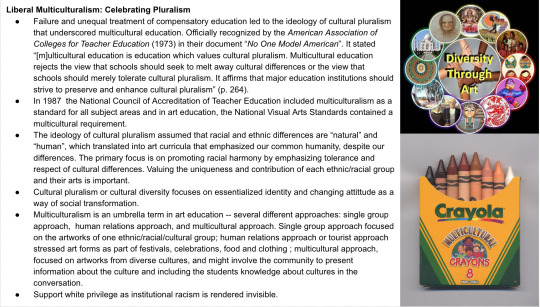This Teacher Toolkit is a resource in response to the NYU Race, Education, and the Politics of Visual Representation Course. This Toolkit highlights some key ideas, terms for Multicultural and Anti-Racist teaching, readings and articles, personal notes and artists resources. I've also included class readings/ optional readings to come back to them.
Don't wanna be here? Send us removal request.
Text
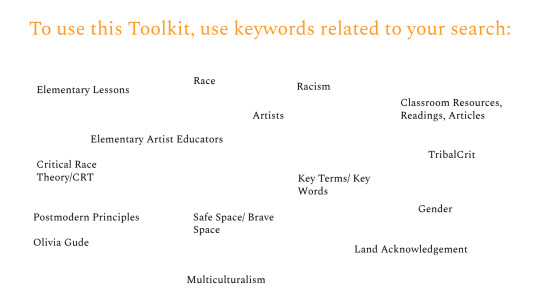
These keywords are used to go back to optional readings that were missed during class and readings that could help me think of lessons, or specific searches to help me pull up my notes and highlighted text.
Or you can scroll! This list will continue to grow as my resources grow.
0 notes
Text
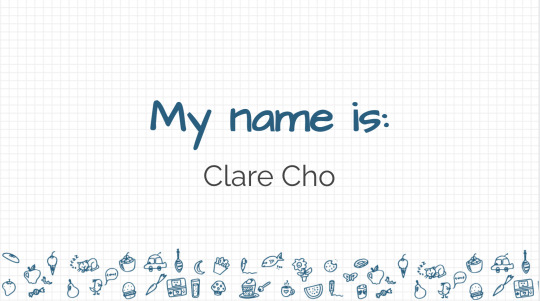
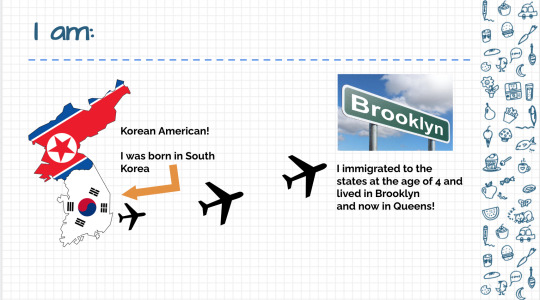
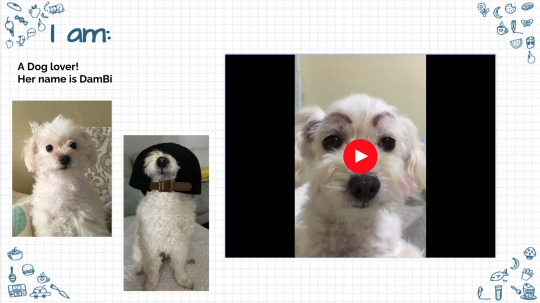
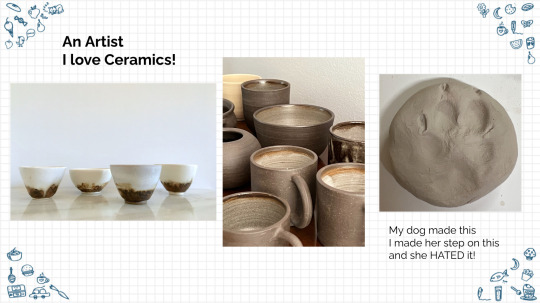
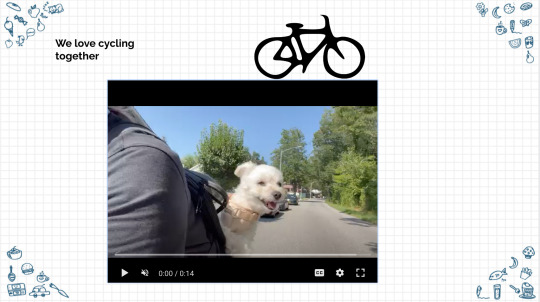
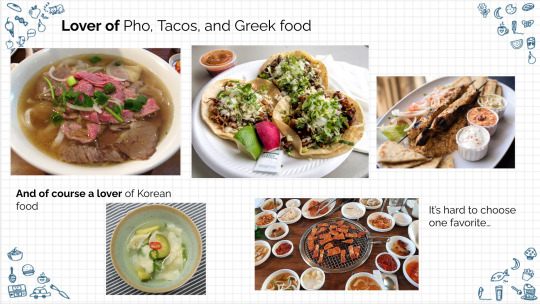
Teacher introductions are important! Students also need to know who you are and want to know more about you!
This can also help students to feel more connected to me and sharing who I am is just as important as students sharing about themselves.
Dog photos and food is a great way to connect! Especially if its Dambi!
0 notes
Text
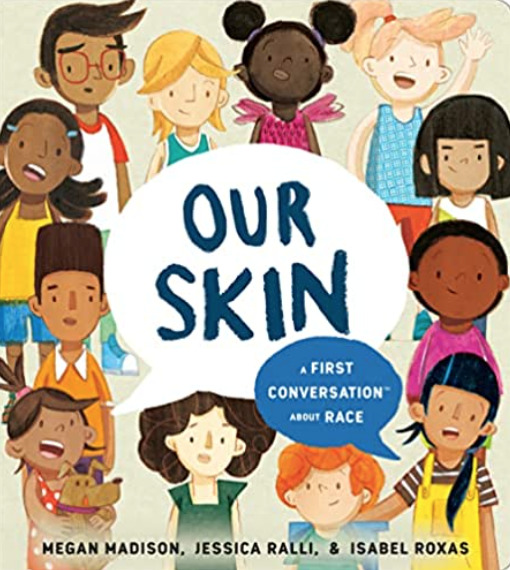
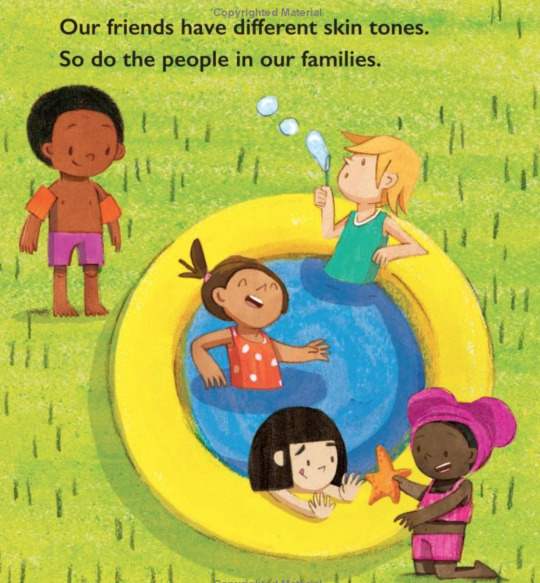
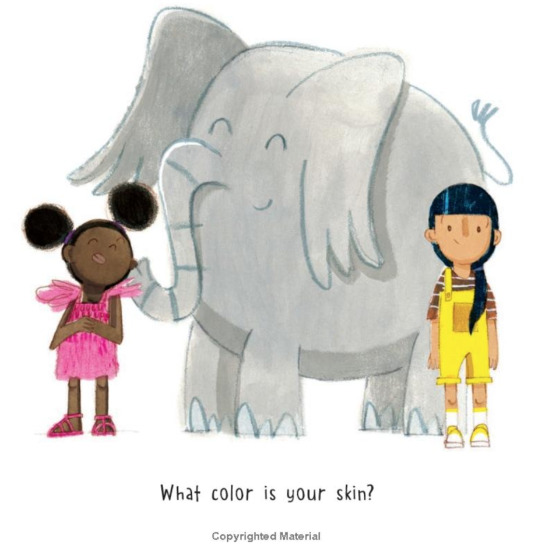
Based on the research that race, gender, consent, and body positivity should be discussed with toddlers on up, this read-aloud board book series offers adults the opportunity to begin important conversations with young children in an informed, safe, and supported way. Developed by experts in the fields of early childhood and activism against injustice, this topic-driven board book offers clear, concrete language and beautiful imagery that young children can grasp and adults can leverage for further discussion. While young children are avid observers and questioners of their world, adults often shut down or postpone conversations on complicated topics because it's hard to know where to begin. Research shows that talking about issues like race and gender from the age of two not only helps children understand what they see, but also increases self-awareness, self-esteem, and allows them to recognize and confront things that are unfair, like discrimination and prejudice. This first book in the series begins the conversation on race, with a supportive approach that considers both the child and the adult. Stunning art accompanies the simple and interactive text, and the backmatter offers additional resources and ideas for extending this discussion.
Race, Childrens book, Teacher resource
0 notes
Text
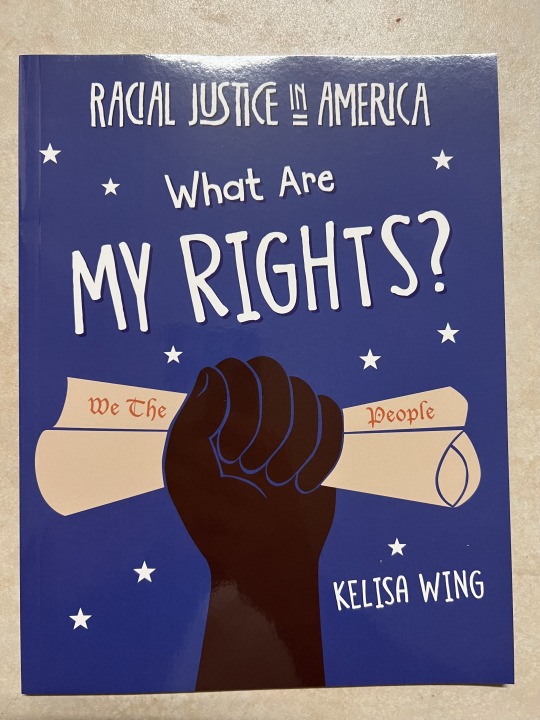
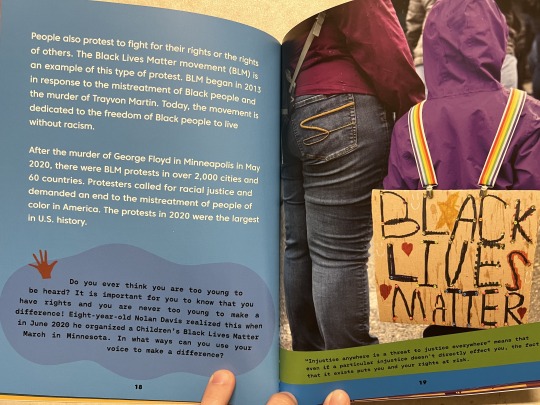
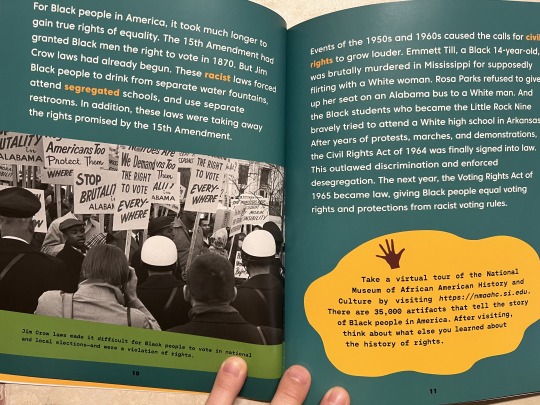
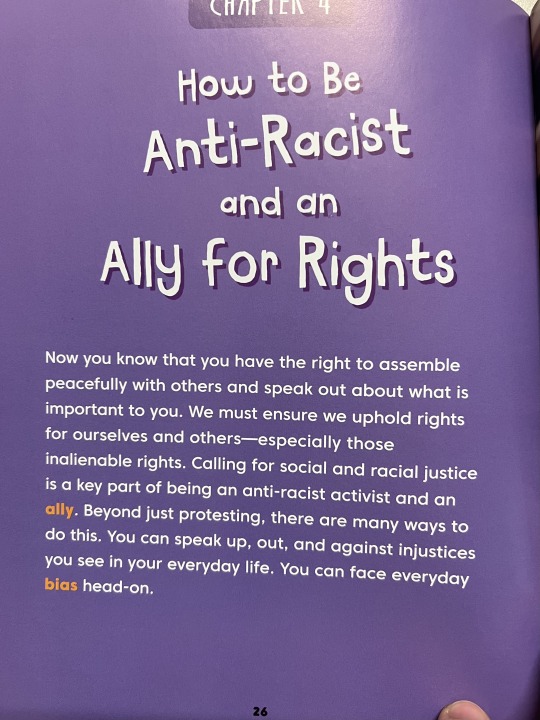
What Are My Rights? By Kelisa Wing
She also has other books about White Privilege, Defund the Police (which I haven't had the chance to read yet). But this book explains terms such as ally, racist, segregation, racism. This book explores the right you have in school, activism, and with the police in a comprehensive, honest, and age-appropriate way. Developed in conjunction with educator, advocate, and author Kelisa Wing to reach children of all races and encourage them to approach race issues with open eyes and minds.
0 notes
Text
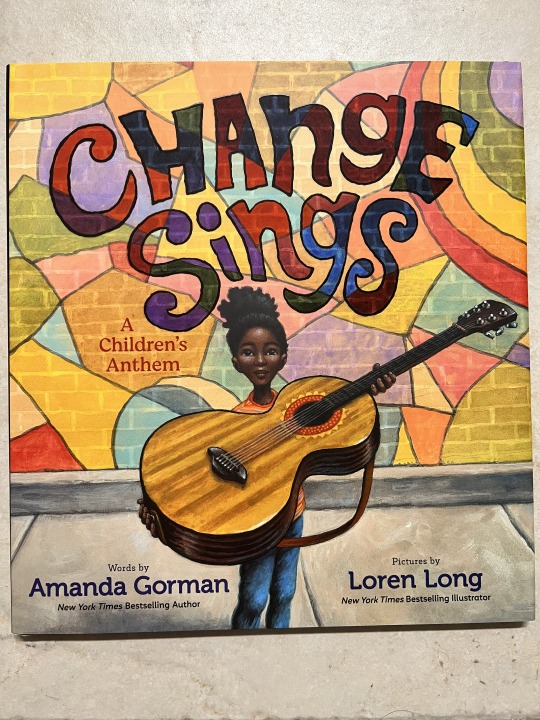
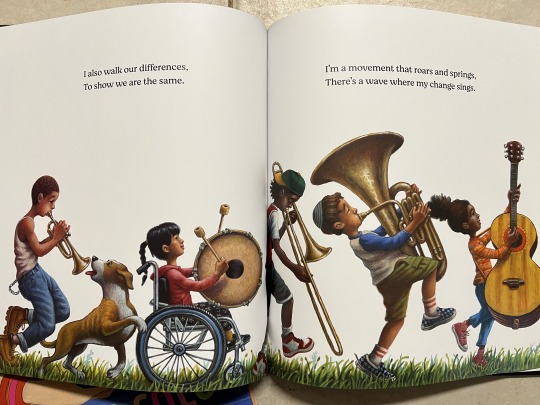
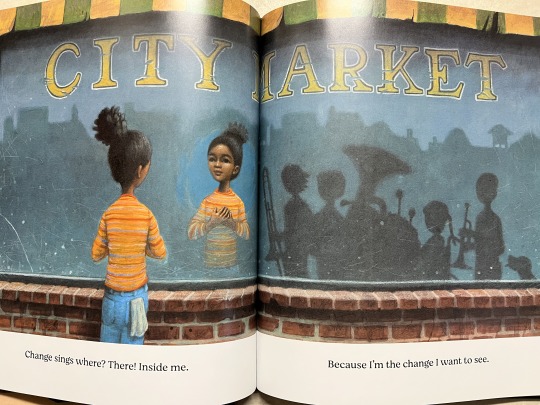
"I can hear change hummingIn its loudest, proudest song. I don't fear change coming, And so I sing along." In this stirring, much-anticipated picture book by presidential inaugural poet and activist Amanda Gorman, anything is possible when our voices join together. As a young girl leads a cast of characters on a musical journey, they learn that they have the power to make changes—big or small—in the world, in their communities, and in most importantly, in themselves. With lyrical text and rhythmic illustrations that build to a dazzling crescendo by #1 New York Times bestselling illustrator Loren Long, Change Sings is a triumphant call to action for everyone to use their abilities to make a difference.
Teacher resource, Book resource
0 notes
Text
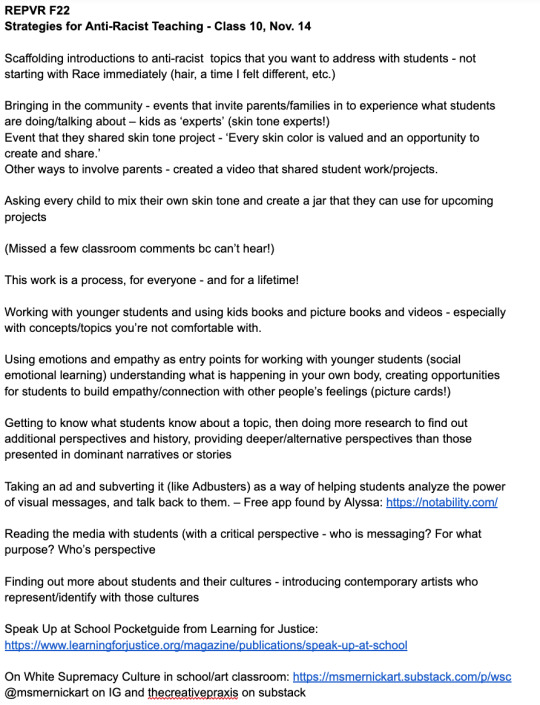
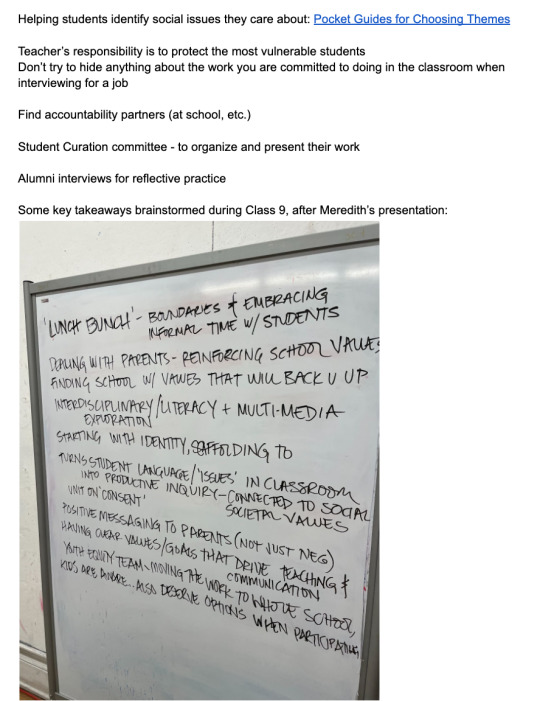
Strategies for Anti Racist Teaching, Teacher guest speaker
0 notes
Text
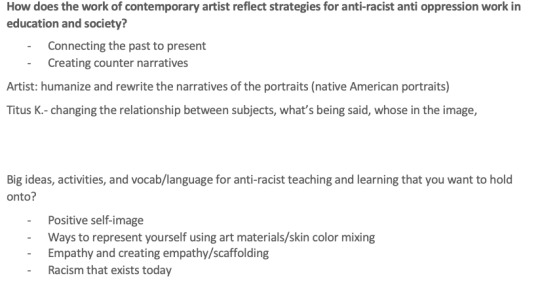
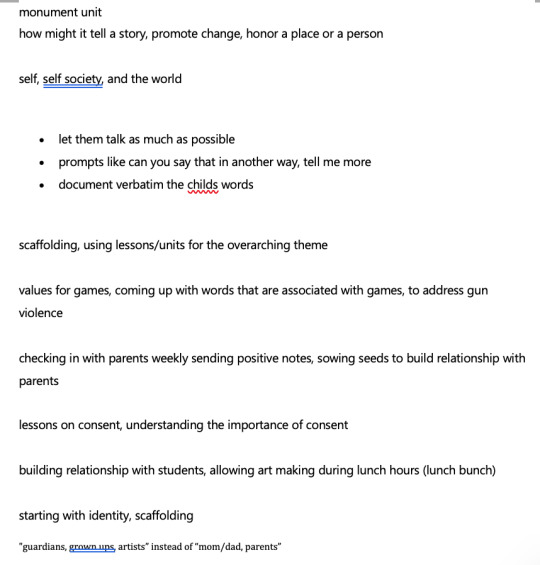
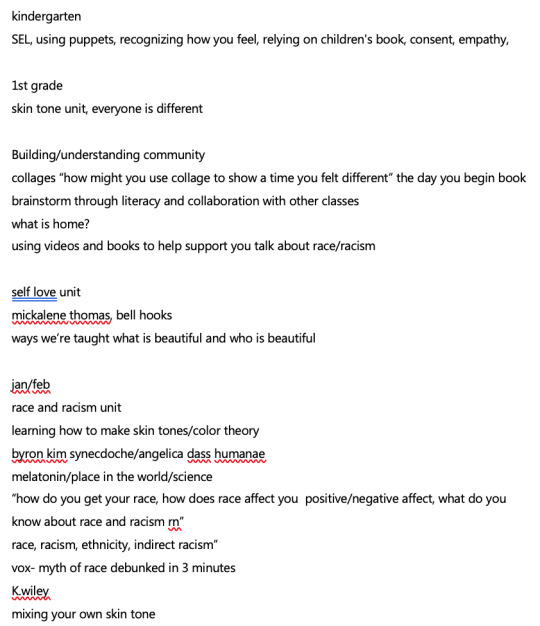
Notes from Guest Speaker Meredith McDevitt. These were some suggestions about units she covers over a year, and lessons for different grades. She also mentioned the importance of having a school that aligns with some of your goals as an educator to support and back you up on your teaching journey!
Books suggested were about consent, skin tone, body, gender. I've put an example above. I hope to use some of these lesson ideas in my own teaching.
Race, Lesson Ideas, Elementary
0 notes
Text
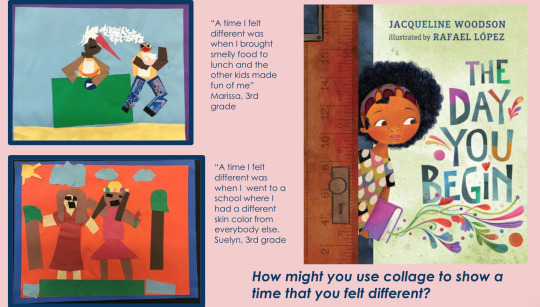
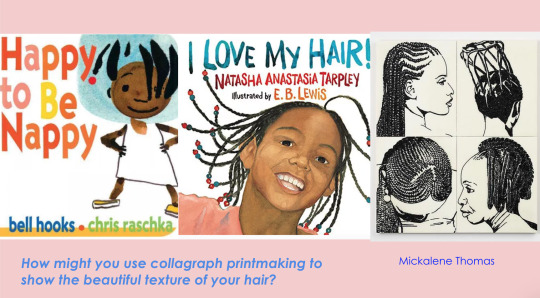
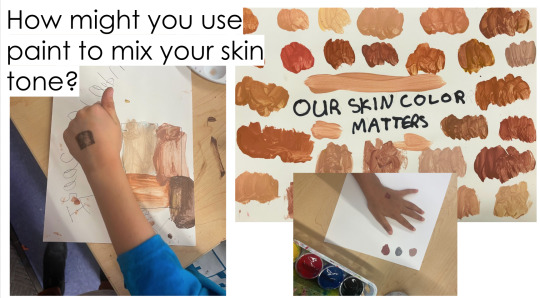
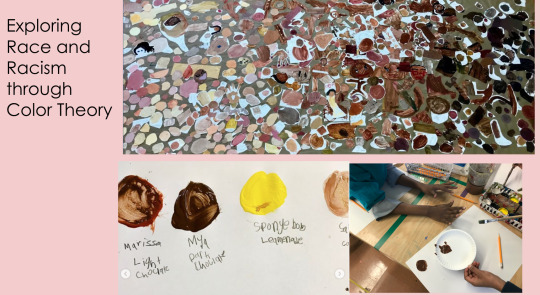
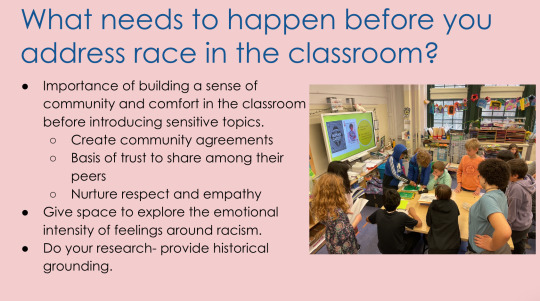
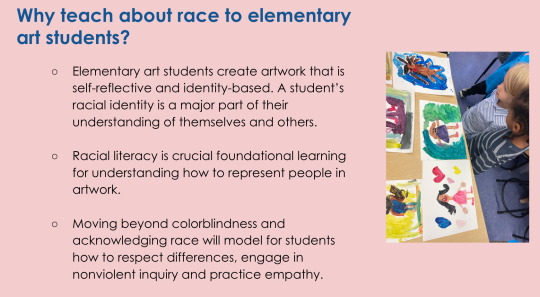
Credit to Meredith McDevitt
Artist Educator teaching at PS039 also is an adjunct professor at NYU for our Elementary seminar and an alumni ! She also introduced the book above.
Pulled from her presentation slides, this was a way for her to address race in the classroom and lessons she did with her elementary classroom and some of her lessons she did with color theory.
Meredith had students mix their own skintone and did a lesson on color theory and after, students each had a jar of their skin tone paint!
NYU Alumni Guest Speaker, Teacher Resources, Skintone, Color theory
0 notes
Text
Anti-racist/Anti-Oppressive Pedagogy 2: HOW can we move from the personal to the political using storytelling?
Read:
Louise Derman-Sparks, Carol Tanaka Hilga, Bill Sparks, ‘Children, Race and Racism:
How Race Awareness Develops’
Leake, Maria (2018) ‘The politics of representation: Reconstructing power and privilege through art’ in The Palgrave Handbook of Race and the Arts in Education.
Katherine Johnson, ‘Why is this the only place in Portland I see Black people? Teaching young children about redlining’ from Rethinking Schools
Cowhey, Creating a Gay- and Lesbian-Friendly Classroom + It’s OK to be Neither p. 13-18, in Rethinking Elementary Education
Teaching for Change, Considerations for Early Childhood and Early Elementary Educators on Slavery and Resistance
Watch:
Titus Kaphar TED Talk, “Can Art Amend History?”
Curriculum Resources:
Black Lives Matter at Schools: Principles Activity Book and Year of Purpose & Student Principles Posters (Caryn Davidson, Art Teacher/NYU Alumna
Ellen Wolpert, ‘Photo Picture Cards: A Key Tool for the Anti-Bias Classroom’ in Heroes and Holidays, pp. 211-214
Class Resource, Race, Awareness, Gender, Gay and Lesbian Friendly Classroom
0 notes
Text
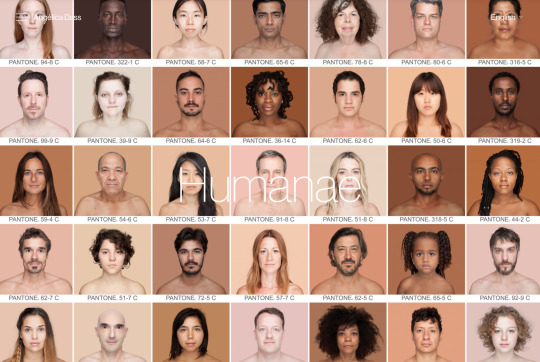
Humanæ is a photographic work in progress by artist Angélica Dass, an unusually direct reflection on the color of the skin, attempting to document humanity’s true colors rather than the untrue labels “white”, “red”, “black” and “yellow” associated with race. It’s a project in constant evolution seeking to demonstrate that what defines the human being is its inescapably uniqueness and, therefore, its diversity.
Art, Artist, Race, Art Resource
What are the characteristics of multicultural and anti-racist/anti-oppressive pedagogy grounded in CRT? How do they differ from each other?
Read:
Christine Sleeter, ‘Creating an empowering multicultural curriculum’ in Race, gender and class, 2000
Acuff, J. B. (2014). ‘(mis)Information highways: A critique of online resources for
multicultural art education,’ International Journal of Education through Art, 10(3), 303-316.
Dipti Desai, ‘The Challenge of New Colorblind Racism in Art Education.’ In Art Education, 2010
Beverly Tatum, ‘Critical Issues in Latino, American Indian, and Asian Pacific American Identity Development’ in ‘Why Are All the Black Kids Sitting Together in the Cafeteria?’ And Other Conversations about Race, pp. 131-190
Rethinking Schools, Teaching for Black Lives: ‘Schools and the New Jim Crow, Interview with Michelle Alexander’
Media//Watch:
Race: The Power of an Illusion, Part 3 [57 minute video, If link doesn’t work, access via NYU Kanopy]
School to Prison Nexus website created by NYU Art+Ed students (2020)
Artwork:
James Luna, Take a Picture with a Real Indian, 2013
Angelica Dass, Humanae Project https://angelicadass.com/photography/humanae/
0 notes
Text
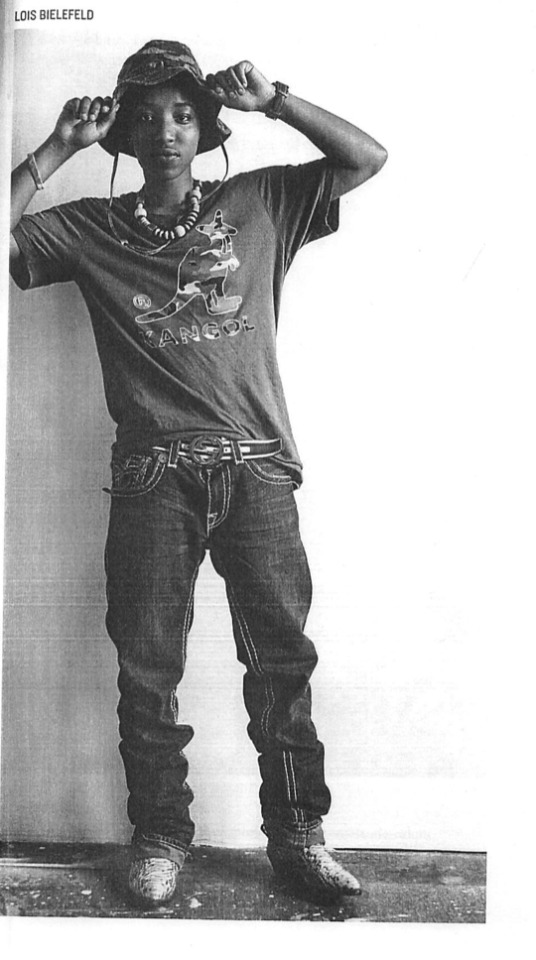
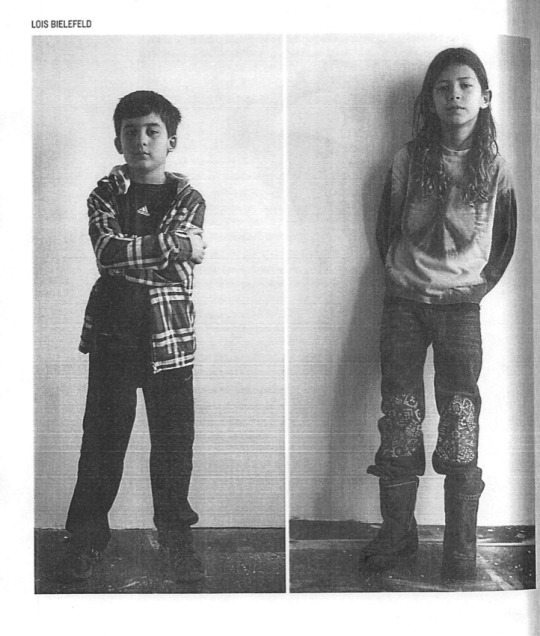
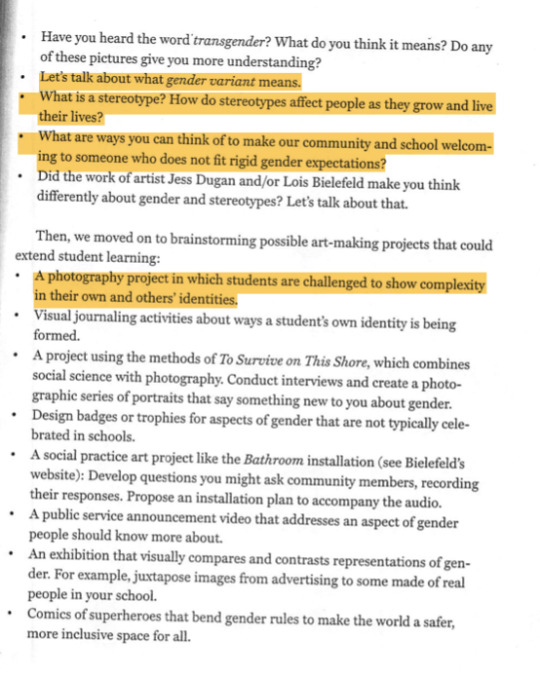
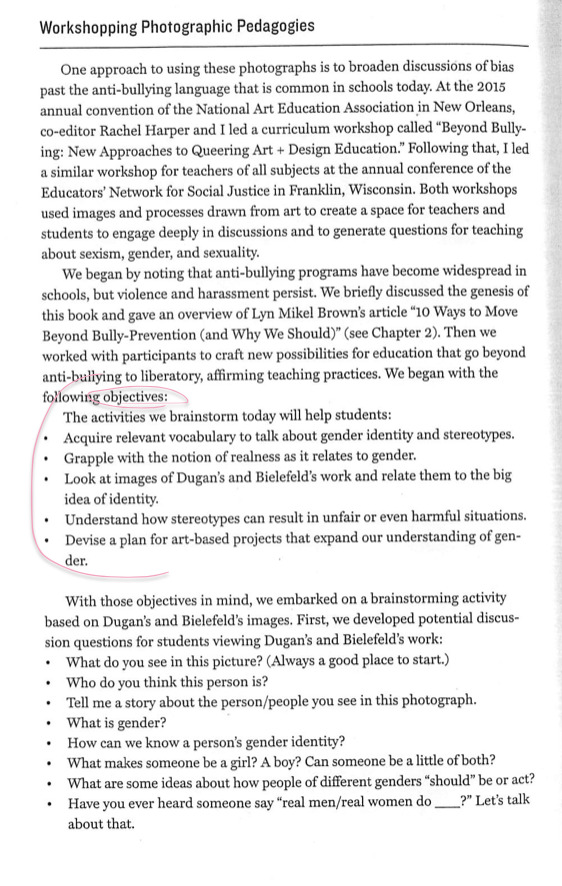
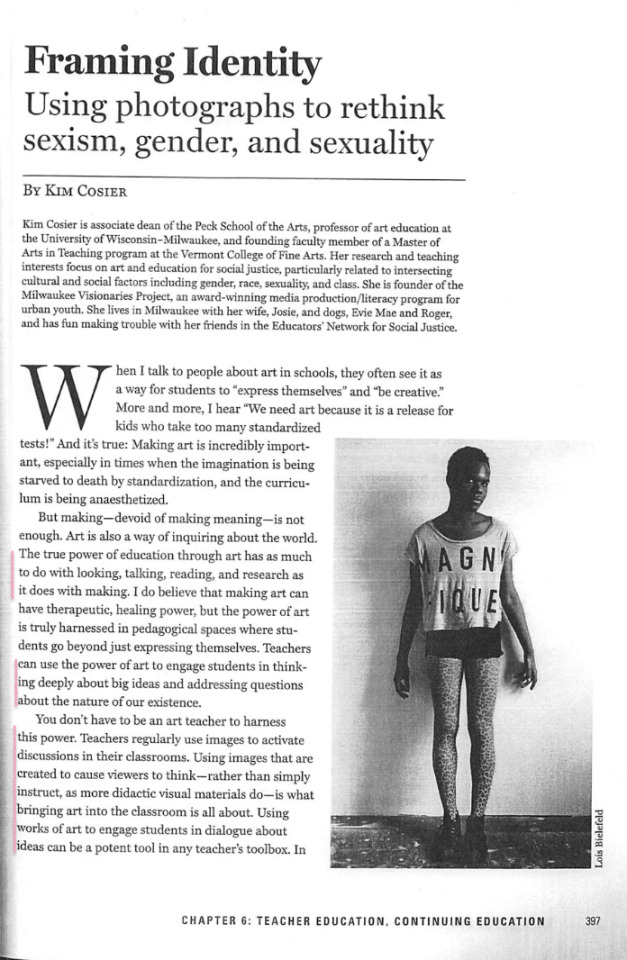
Framing Identity, Kim Coster, Objectives, Gender, Stereotype

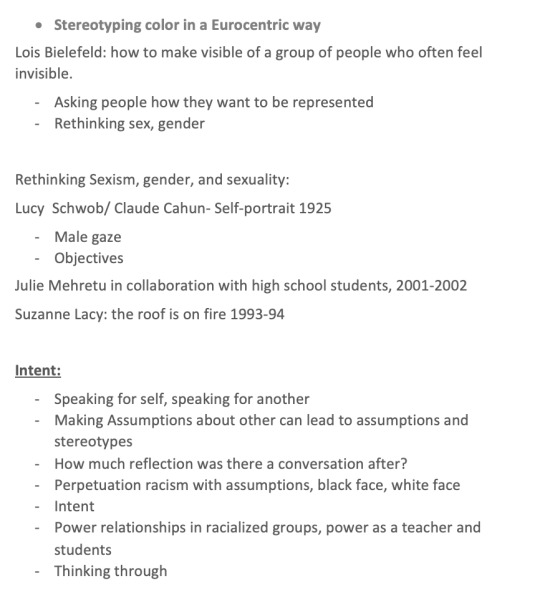
Notes
1 note
·
View note
Text
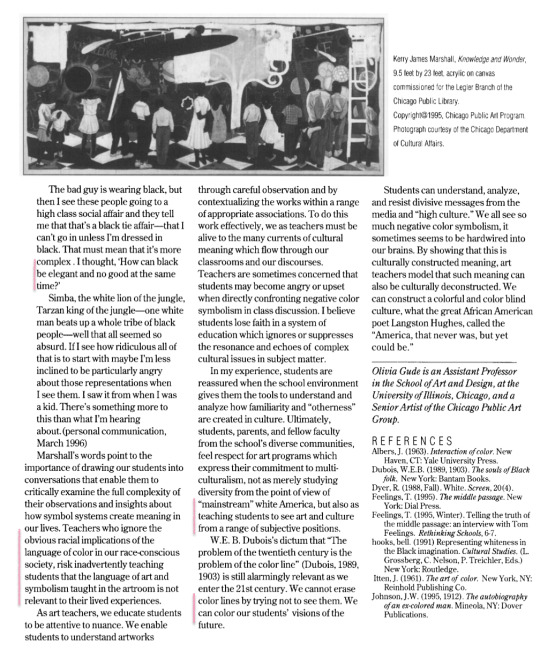
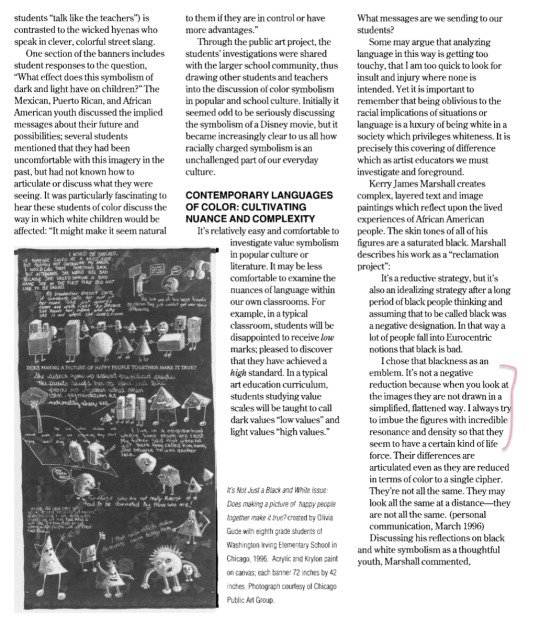
Olivia Gude, Drawing Color Lines
Olivia Gude is an American artist and educator and founding director of Spiral Workshops. Olivia was also my chairman and my professor of Art Education in my undergraduate program at School of the Art Institute of Chicago. Olivia Gude’s Postmodern and Principles of Possibility examine a modern approach to art education. The elements and principles of design have long been engraved in the art education handbook, but contemporary artists need to push further. Each of her ideas for the future of art education are put into action in this project. Playing, Forming Self, Investigating Community Themes, Encountering Difference, Attentive Living, Empowered Experiencing, Empowered Making, Deconstructing Culture, Reconstructing Social Spaces and Not Knowing are her Principles of Possibility. Appropriation, Juxtaposition, Recontextualization, Layering, Interaction of Text & Image, Hybridity, Gazing, Representation are her Postmodern Principles.
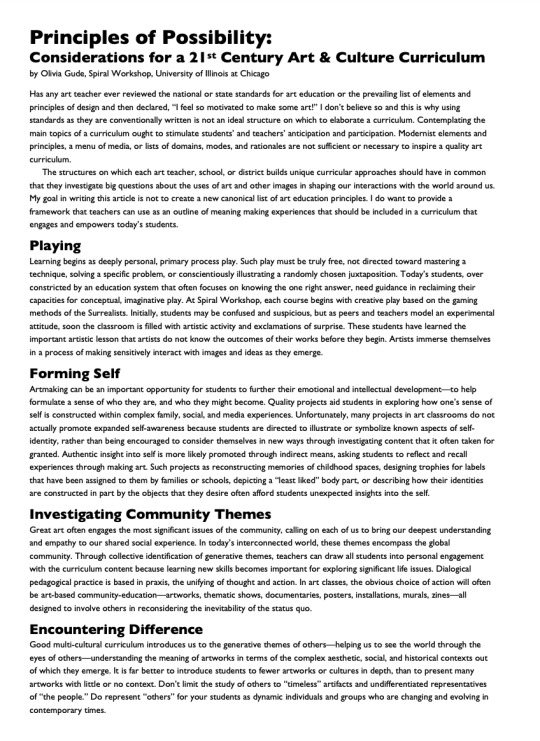
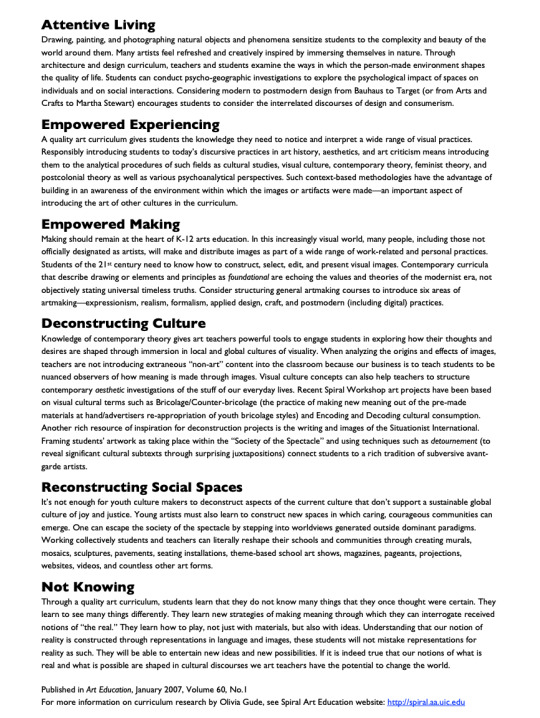
0 notes
Text
What are the politics of representation? Who can represent who and why?
Read:
bell hooks, ‘Reflections on Race and Sex’ in Yearning: Race, Gender and Cultural Politics
Dipti Desai, ‘Imaging Difference: The Politics of Representation in Multicultural Art Education’
Nikki Chau, ‘Everything you know about identity politics is wrong’
Fred Wilson, ‘The Silent Message of the Museum’ in Global Visions: Towards a New Internationalism in the Visual Arts
Olivia McEwan, How the Labels in the British Museum’s Africa Galleries Evade Responsibility (Hyperallergic, June 29, 2021)
Jean Robertson and Craig McDaniel, ‘Identity’ in Themes of Contemporary Art: Art After 1980, 2nd Ed.
Watch:
Chimamanda Adichie TED Talk, “The Danger of a Single Story” [18 min video]
Zanele Muholi Mobile Studio, Art21 [4 minute video]
Artists/Artworks:
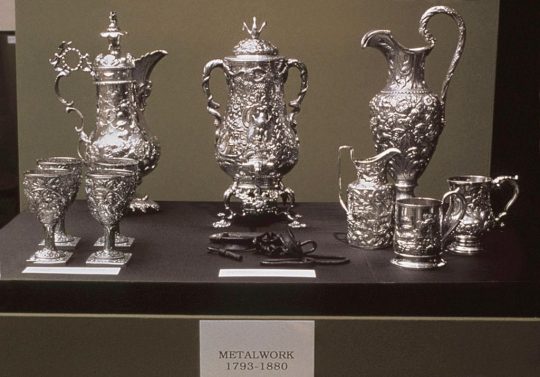
Fred Wilson, Mining the Museum, 1993
Zanele Muholi, Faces and Phases, 2007-2013
Class Resources, Multicultural, Representation, Identity
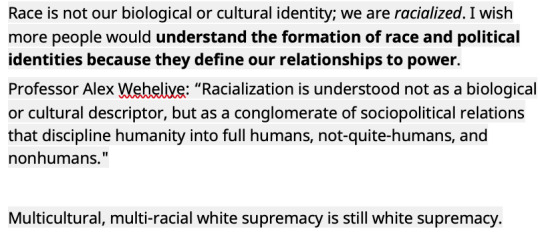
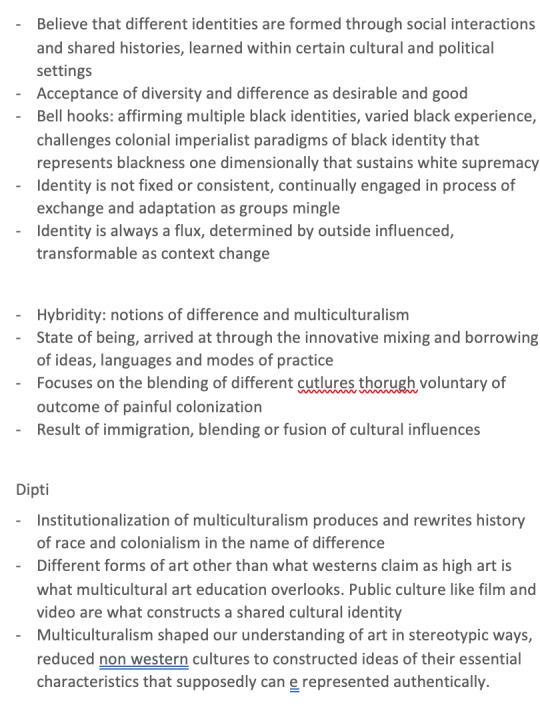
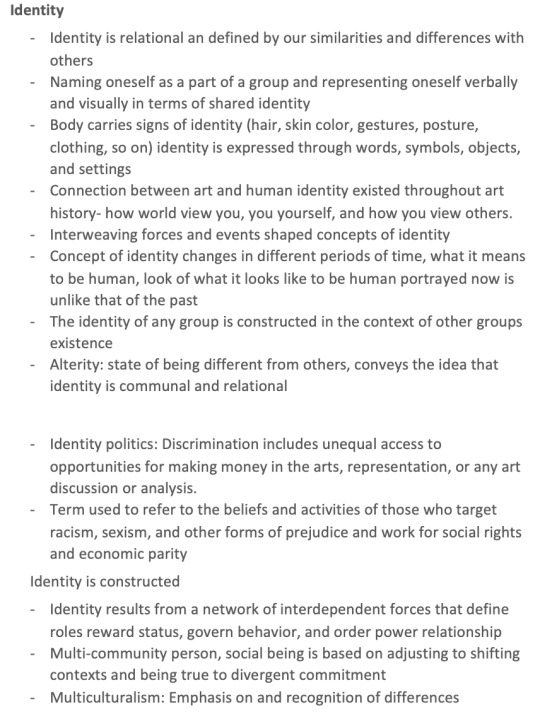
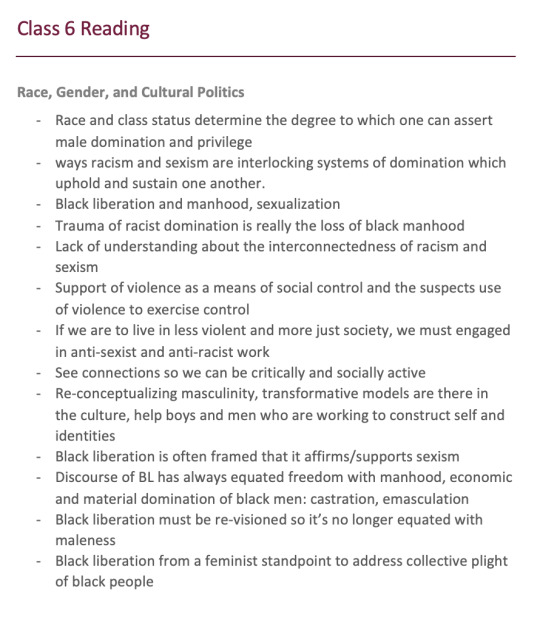
0 notes
